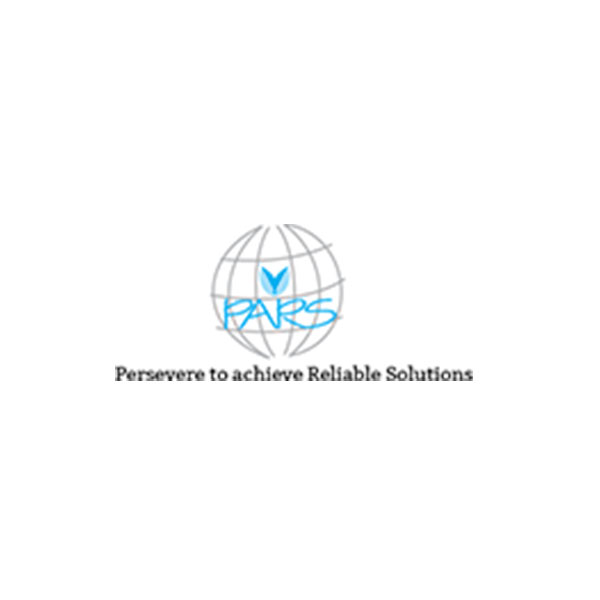Solar Energy Solutions
Solar energy is one of the cleanest sources with no GHG emission to generate renewable electricity to meet electricity requirement for your business, institution and home. With continuous upgradation of technology and incentive offered by government, rooftop solar systems are viable in long term and short term as well by selecting right modules, inverter, size of system and engineering design.
PARS offers solar solutions for different segments, such as ground-mounted systems, rooftop systems, building integrated systems (BIPV), offgrid systems, hybrid diesel-solar PV systems. Our experts offers evaluations showing returns, paybacks and energy savings for your business and also offers a free savings forecast showing how solar photovoltaic can add value to your business. Team at PARS adopts professional approach to assess the demand by detailed analysis of your energy consumption pattern including import from grid and generation in DG sets and provides you an optimum solar size to save your energy cost. We use following appraoch
- A spreadsheet that calculates the savings and electricity generation throughout the 25 years period. This calculation methodology is conservative but system specific and as such the energy production estimates are more accurate than those produced by other commonly used methods
- A dynamic model that analyses the yearly half hourly demand and matches the output of the solar system to this demand. This analysis will gives us a better idea of the fluctuations and therefore makes it easier for us to provide you with the most suitable sized proposal in terms of loss minimisation and maximizing returns.
Pars-Solar Service Portfolio
Prefeasibility Study
- Site Visit
- Physical Due Diligence
- Investment Analysis
- Prefeasibility Report
Detailed Project Report
- Simulation Studies
- Technology Selection
- Plant & Machinery
- project Implementation & Schedule
- Project Financials
- Risk Analysis
Project Execution (EPC)
- Engineering Drawings
- Testing and supply of equipment’s to site
- Civil Work
- Installation of support frames & Solar modules
- Electrical Connection
- Testing & Commissioning
Scope Of Services
The studies will mainly include the following steps:
- Market Analysis and trends in Indian Solar Market
The study will cover detailed market analysis of Solar Power Industry with an insight into latest trends in technology and market mechanisms and its possible impact on the solar power sector of India.
- Overview of Regulatory Framework and policy structure in India
The study will aim to make the developer aware about the various solar policies (center and state specific) and their regulatory impacts on the project. This will enable the developer to have an understanding of the policies across specific states. - Detailed insight on Tariff, and Clearances in selected states
Sale Tariff is an important part of a project and its certainty and availability will make the project feasible and viable. In addition to that if the clearances procedures in a state are under single window then the gestation stage of the project becomes less and makes it more viable. The studies will put serious focus on this scenario as it will be a major part of decision making for the development stage of a project. - Site Assessment
Selecting a suitable site is a crucial part of developing a viable solar PV project. In selecting a site, the aim is to maximize output and minimize cost. The main constraints that need to be assessed include:- Solar resource – Global Horizontal Irradiation, annual and inter-annual variation, impact of shading.
- Local climate – flooding, high winds, snow and extreme temperatures.
- Available area – area required for different module technologies, access requirements, pitch angle and minimizing inter-row shading.
- Land use – this will impact land cost and environmental sensitivity. The impact of other land users on the site should also be considered.
- Topography – flat or slightly south facing slopes are preferable for projects in the northern hemisphere.
- Geotechnical – including consideration of groundwater, resistivity, load bearing properties, soil pH levels and seismic risk.
- Accessibility – proximity to existing roads, extent of new roads required.
- Grid connection – cost, timescales, capacity, proximity and availability.
- Module soiling – including local weather, environmental, human and wildlife factors.
- Water availability – a reliable supply is required for module cleaning.
- Simulation Studies – The energy yield prediction provides the basis for calculating project revenue. The aim is to predict the average annual energy output for the lifetime of the proposed power plant (along with the confidence levels). The level of accuracy required will depend on the stage of development of the project. The study will stress on the simulation and generation profile using software such as PVsyst and METEONORM.
- Technology Selection
This section deals with the components and technology to be employed i.e. module technologies, mounting systems, inverters, monitoring and forecasting techniques. The purpose is to provide a framework of understanding for developers and investors before they commit to a specific technology. Our engineers perform a detailed engineering analysis that enables us to define the proposed mounting structures, inverter, battery and charge controller specs, and other system components applicable to your specific requirements. - Financial Analysis and Cash Flows
This is the important part of the project which will ascertain the returns of the project under different policies, under respective states. Detailed financial analysis and calculations will give developer the perfect picture on the Return of Investment including IRR and payback. - Erection and Commissioning
Our field staff manages the entire erection & commissioning process, including the logistics, system integration, civil work and if required, the power evacuation infrastructure set-up. - Project Management
We take pride in completing the projects before the defined timelines and ensure that you are satisfied with the quality, reliability and functional requirements of the SPV system.

